Our season three showdown was bundled into a 2-hour finale that refused to quit playin’ games with my heart, featuring the usual blend of fist pumps, emotions (soooo many emotions), bursts of thoughtfulness, and, yeah, the occasional raised eyebrow, too. There’s a whole lot to talk about, so let’s get right to it.
The Recap:
The AoS creative team is no stranger to understanding story patterns and audience expectations—and no stranger to using them to screw with us, either. A lot of AoS episodes begin in medeas res and then jump back in time to explain how we got there, so it stands to horrifying reason that Daisy and Phil will eventually get trapped in a containment chamber on the Desert Otherworld and NOPE, no, J/K, it was just a dream. Continue to expect this level of trolling for the first 40 minutes, to the point where, if you listen carefully, you can actually hear the writers cackling madly to themselves.
After a mission that ends surprisingly well (missile launch prevented, Radcliffe retrieved, Hive mind-scrambled and captured?!), the team goes back to base to regroup, plan their next move, and wave endless death flags. From Lincoln’s “two days to retirement” to FitzSimmons’s “romantic vacation plans” to the show’s downright sadistic focus on that cross necklace, it’s nail-biting fun for the whole family! Also, in the interest of maintaining my #brand, you will be receiving one bad pun for every time the damn necklace changes hands. You’re welcome.
On the more emotionally charged side of the story, Daisy grapples with a combination of guilt and withdrawal, spiraling ever deeper into self-loathing and depression. Coulson tries to absolve her of any wrongdoing (“no one blames you”) but she’s having none of it, insisting she “deserves” to be locked up and treated like a criminal. She even compares her own brainwashing to Ward’s, making her actions just as unforgivable as his. They’re not the same, but it’s understandable why Daisy would feel that way, given recent events and her own hard-line stance about personal responsibility.
In the first half’s best sequence, a beautiful moment of friendship and compassion, Mack says “screw protocol” so he can meet Daisy face-to-face and let her know about Hive’s capture. When Daisy tries to push him away (in every sense of the phrase), he forgives her and brings her in for a hug that definitely didn’t wreck me so hard I forgot how to think coherent thoughts or write coherent sentences, I am a professional, dangit, and I—
AoS continues to provide a refreshingly positive portrayal of people of faith, as Mack demonstrates the quiet confidence and love rather than the aggression and bigotry that’s so often associated with it (somewhat understandably, mind, given how loud and awful that faction is, but I still appreciate the nuance). He and Daisy talk about the nature of evil and how it often tries to get people to destroy themselves, and how everyone has a choice between giving in to that darkness or letting “the light” in. It’s a bit cheesy, but Henry Simmons is a good enough actor to sell it. Plus it sets us up for a lot of second half imagery involving fire and electricity (lights) as forces to drive out the darkness, so bonus!
All of this takes a backseat to Shit Hitting The Fan, though, when Hive’s remaining minions priority-mail SHIELD a Terrorgen Bomb (shhh, don’t ask how it got past security—in fact, don’t ask any logistics questions for the next 40-odd minutes). It turns 28 agents into “worker bees” and the base into a freaking horror movie. Kevin Tanchareon is back to direct the final episode (“Ascension”), and you can tell because it has a much stronger sense of cinematographic style and voice than most AoS episodes, and also because the fight sequences are fantastic.
During this stretch, the ladies to do a whole lotta butt-saving without having to die in the process, which helps maintain gender parity in terms of who saves whom this week while thankfully not adding to the year’s Dead Female Character tally. Simmons rescues first Fitz and then her entire team (by literally blinding the baddies with science), and Elena protects Mack but learns she’s not quite fast enough to catch bullets (where is Joey when you need him?!). In return, Mack, er … if I said he “Roy Mustang’d” her wound closed, would y’all know what I meant? To summarize: Ow.
Meanwhile, Daisy hacks her containment chamber so she can … beg Hive to take her back? Okay, yeah, was definitely not expecting that. It’s one of those story choices that hurts me but is also really, really good character work, highlighting Daisy’s most deeply ingrained weakness—her desire to feel belonging and connection—and driving home the season’s extended metaphor of “Hive as Drug” and the struggle against addiction.
But turns out Andrew’s “cure” made her permanently immune to HiveMind, so she tries to kill him instead. Daisy would have won this fight handily if Hive didn’t have ridiculous regenerative powers, but he does, so he ends up besting her and taking her hostage. But hey, at least Brett Dalton got beat up once more for the road!
Team SHIELD regroups, gets Elena to safety, and mounts a rescue mission that drives home our all-important season-long theme about the importance of free will and choice. There’s a fair amount of fist-pumping and nail-biting in here: May gets concussed, Fitz straight-up kills “murderous wank” Giyera, Lincoln knocks out James but takes a fire bomb to the side for his troubles, and Phil The Incorrigible Dork trolls Hive with a hologram, fires off his own bad hand pun, and makes another Star Wars reference.
Along the way, the necklace winds up in Daisy’s hands (that thing moves around so much it must be really CrossFit by now), and she knows what that means. She’s ready to “accept fate” and “atone” for her crimes, despite Lincoln’s plea for her not to give in to the guilt and the feeling that “she can’t live with” what she’s done, and …
… Er, sorry, I lost my train of thought, BECAUSE H’OMIGOD:
While an awesomely staged fight sequence rages just outside, Daisy gets Hive onto the Quinjet with the warhead, preparing to launch him (and likely herself) into space and explode the whole thing, saving the world and fulfilling her vision all in one fell swoop. Hive points out that Ward’s memories will allow him to use the manual controls, something Lincoln (?!) had also figured out—hence why he got on board and thundershocked them. Surprise! He knocks Daisy out of the plane and takes off for the stars, Death Necklace in hand. (Stealing, Lincoln? Daisy’s going to be quite cross with you for that.)
Given Lincoln’s belief in each Inhuman serving a “purpose” and how desperately he’s been trying to (re)discover his own since Haven’s collapse, this is a surprisingly cathartic conclusion to his own arc. The scene itself is also far more moving than I’d expected given my relative lack of investment in Lincoln (although I didn’t want him to die by any stretch) or his relationship with Daisy. I credit a lot of this to the actors: Luke Mitchell is very good here, playing quiet panic and peaceful sadness in equal turns, and Chloe Bennett is incredible. Her blend of anger, grief, and guilt is visceral and wrenching, and suggests that despite Lincoln’s belief that he “saved the girl he loved,” this is going to hurt her for a long, long time.
… And then the show had to go and nearly ruin the moment by beating us over the head with a frying pan full of Christ Figure symbolism and an on-the-nose conversation between Hive and Lincoln about sacrificing oneself for flawed humanity. “He’s paying for all our mistakes,” says Coulson as the cross necklace floats through the air with all the subtlety of a sledgehammer, and I have a hard time not rolling my misty eyes.
But AoS is never a show to dwell, so … Flash forward to six months later!, with Daisy “Quake” Johnson on the lam, Team Coulson Mack hunting her down, comments about a “director” and being “assigned” places, and your blogger sitting on her couch just going “Wat. Wat. WAT.” on repeat. Is this a reaction to the Sokovia Accords, perhaps? Or just a natural consequence of Daisy’s recent trauma? Looks like we’ll have to wait four months to find out.
But on the bright side, if Daisy’s working outside the law now, she can totally start hanging out with Bobbi and Hunter again …
Afterthoughts
It’s fair to say this isn’t the finale I expected. It’s also fair to say it isn’t even what I wanted. I wanted Daisy to rise from that containment chamber alight with righteous fury and go Full Superhero on Hive’s ass. I wanted a triumphant victory where Personal Agency triumphs over Abusive Control and everyone goes home to laugh and watch bad movies and eat shawarma together. I knew it wouldn’t go down like that, but I had hopes about the Daisy stuff, anyway. After all, this is a superhero show, right? And the good guys always buck up and overcome through sheer force of will, right?
Well, not here, or at least not yet. I suspect that being renewed for a fourth season well in advance allowed AoS to play this episode a lot like the end of a half-season rather than a full one, wrapping up the central conflict and one character’s story while still leaving others very much “in progress.” There’s a level of frustration here that I can’t quite shake, mostly because I’ve come to love Daisy and she’s spent each of the last three seasons being betrayed to some extent by the group she’s tried to call home—SHIELD, Afterlife, Hive—and losing a lot of people she cared about along the way. I’m tired of seeing her suffer.
Daisy needs one in the “W” column, to feel like she’s in control of her own life again, and perhaps to find a family she can build and lead rather than following and joining somebody else’s. If that’s AoS‘s ultimate end-game, then she’ll likely have her own satisfying character arc when all is said and done. But it didn’t happen here, which means we’re left once again with Daisy being “saved” (physically at least) and feeling powerless. New ability to Leap Tall Buildings In a Single Bound notwithstanding, that’s a hell of a downer ending, there.
Despite all that, I have a lot of respect for what the creative team is trying to do this week in terms of tackling complicated topics and developing their central characters (frustrating and painful as it may be). Daisy and the HiveMind developed into an imperfect but nevertheless poignant, powerful metaphor for addiction that was handled with a lot of sympathy and respect, and woven deeply into the episodes’ two major themes: “connection” and “choice.”
Throughout this finale, people try to help Daisy—to make that personal connection—but it never quite works because they’re all seeing her experience through the lenses of their own, and none of those match up. Coulson compares her loss to his (Rosalind), so he tells her none of it was her fault and cautions her against a revenge she doesn’t even want. May does the same, encouraging Daisy to “balance the scales” and give Andrew’s death meaning. Mack comes close to true empathy when he forgives her (he doesn’t actually blame her, but he knows she needs to hear it in order to eventually forgive herself), but then he ties her situation to the mind control he experienced and the connection breaks again, because they’re just not the same.
Only Lincoln, with his history of addiction, has an experience that aligns best with Daisy’s, and so he’s the one who’s able to most effectively connect with her. He’s the only one who knows the real reason she confronted Hive at the SHIELD base, and while he doesn’t condemn her for it, he doesn’t absolve her of it, either. He doesn’t pretend she can undo the damage, both to herself and to others. He simply tells her to live with it. That that’s all she can do. And when she (still reeling from trauma and withdrawals) thinks she can’t do that, he does what people do for their loved ones: he intervenes.
I have a personal uneasiness for martyr stories that’s hard to properly articulate, but I think it’s because a lot of them romanticize sacrifice as a purely altruistic act, even though it’s at least partly ego-driven, frequently denies another’s agency (“I’m going to suffer for you whether you want me to or not”), and often leaves a trail of guilt-stricken, grieving survivors in its wake. AoS rather smartly acknowledges all of this: Lincoln is doing this for Daisy, yes, but also to fulfill his own desire for purpose, and Daisy’s final conversation with him (“you can’t die for me”) is full of anger as much as sadness. It also, quietly, forwards the show’s ongoing conversation about free will: about when we can truly be said to be in control of our actions, and where the line between “helping” and “controlling” resides.
AoS’s philosophy is a rather stoic one, essentially arguing that you can’t always control what happens, only how you react and move forward from it. It’s debatable whether Lincoln defied fate or fulfilled it, but he made his own choice and acted in a way that made sense to him—a way that would keep the people he cared about safe and give his own life meaning. Was Daisy trying to do the same? Yes, but the trauma and withdrawals complicate things, putting her in a place where she isn’t fully in control of her actions. All too aware of her circumstances, Lincoln overrides her decision now so she can have the opportunity to make another one later, once she’s healthy again. It’s a delicate balance and your mileage will certainly vary, but I think AoS handled it well, all things considered.
In the end, we wrap up Season Three with few conclusions and even fewer easy answers. Given the increasing moral grayness of the MCU, both on TV and film, perhaps that’s to be expected. It also gives us all kinds of issues both personal and social to explore when the show returns in the fall. I can’t say I leave this one fully satisfied, but I definitely have plenty to think about.
And hey—the FitzSimmons ‘ship sails on, Mack and Elena live to banter another day, Joey’s Sunday dinners continue, and Coulson and May can finally share bad jokes about his RoboHand. So that’s something to cheer and draw cute fanart about, at least.
This, That, and the Other
- Seriously though, mad applause for Chloe Bennett, who acted the ever-loving hell out of this finale. She’s really come a long way since those first stilted performances.
- Farewell, Brett Dalton. And farewell, the Brett Dalton Gets Shot Drinking Game. You were a magnetic, versatile performer and a great excuse to post toasting gifs, respectively. You will both be missed.
- The Internet pointed out to me this morning that both of Daisy’s ‘ships blew up together in a ship. That’s … kind of amazing, actually …
- “I can tell by your mustache that you’re a man of importance and not to be trifled with.” Dr. Radcliffe is a cheeky, morally ambiguous gift, and I’m so glad he’s sticking around.
- And speaking of Radcliffe, he’s just finished inventing an “L.M.D.,” which can only stand for one thing. Looks like Life Model Decoys have finally made it into the MCU! Let the endless death fake-outs begin!
Dee is a nerd of all trades and a master of one. She has bachelor’s degrees in English and East Asian studies and an MFA in Creative Writing. To pay the bills, she works as a technical writer. To not pay the bills, she devours novels and comics, watches far too much anime, and cheers very loudly for the Kansas Jayhawks. You can hang out with her at The Josei Next Door, a friendly neighborhood anime blog for long-time fans and newbies alike, as well as on Tumblr and Twitter.
—The Mary Sue has a strict comment policy that forbids, but is not limited to, personal insults toward anyone, hate speech, and trolling.—
Follow The Mary Sue on Twitter, Facebook, Tumblr, Pinterest, & Google+.



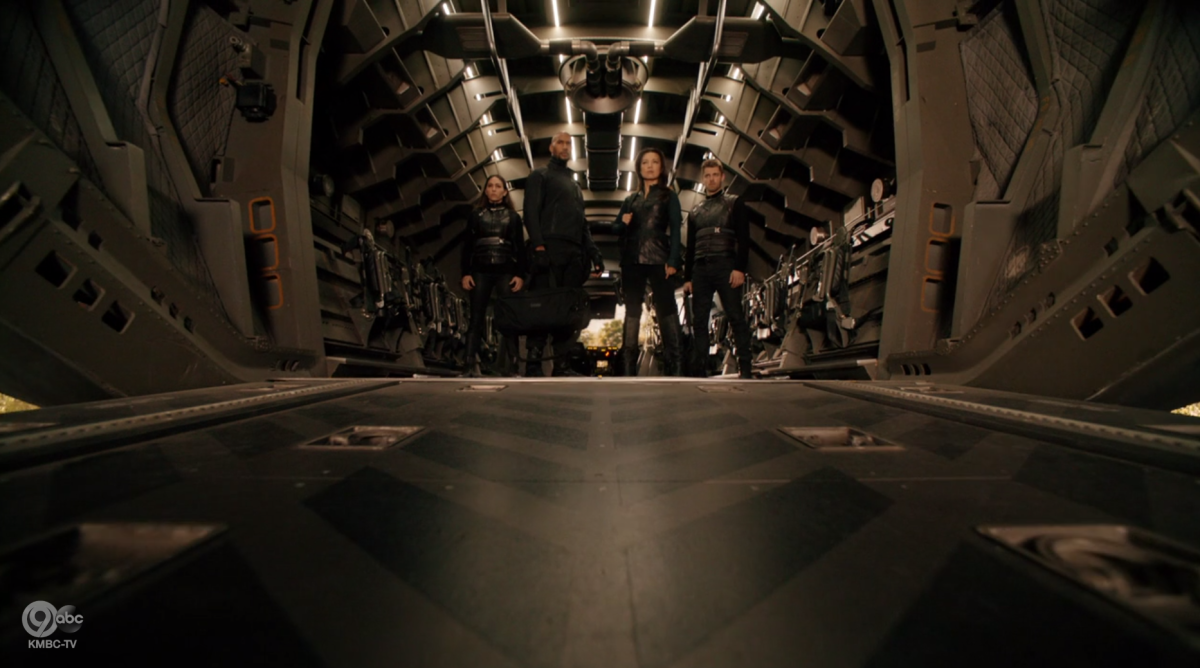
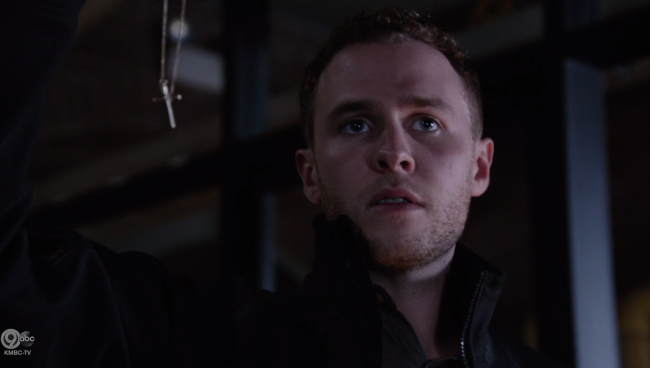
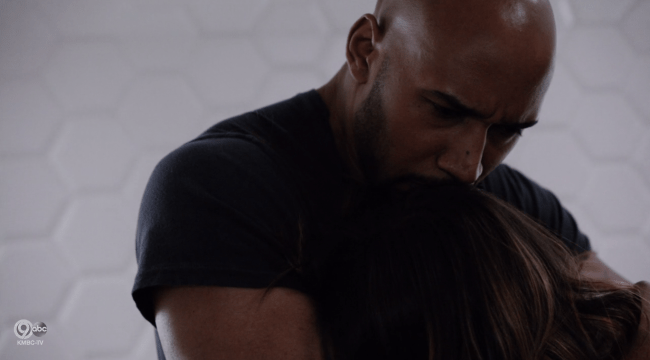
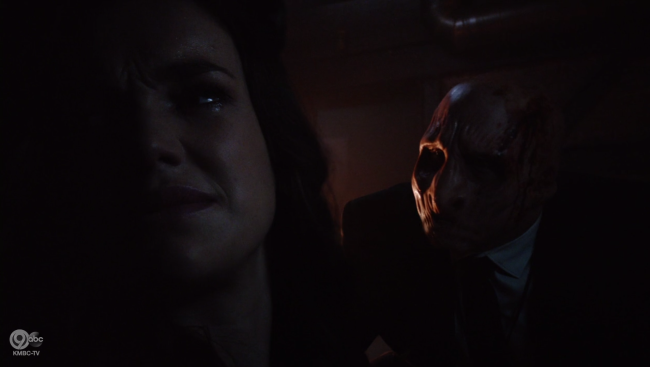
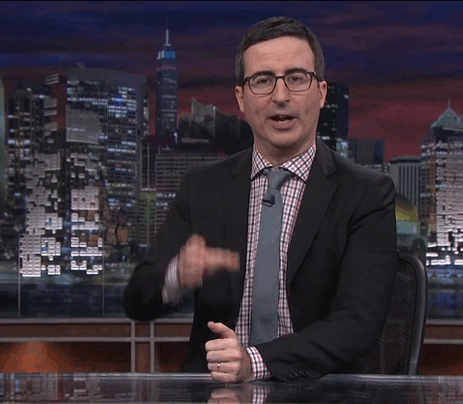
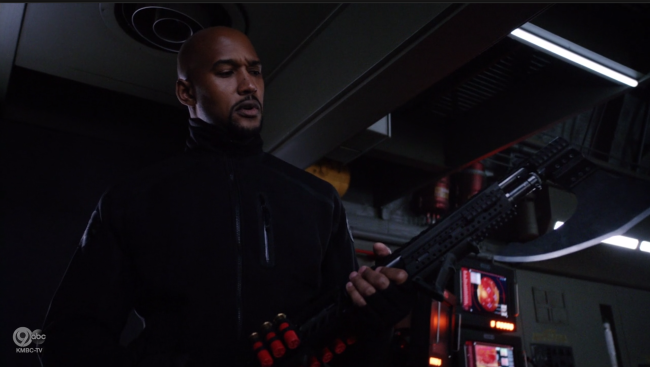
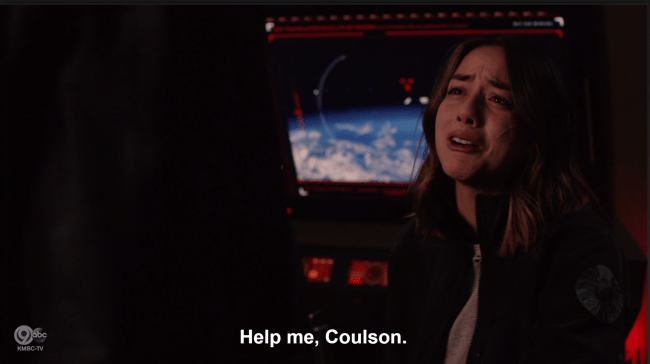
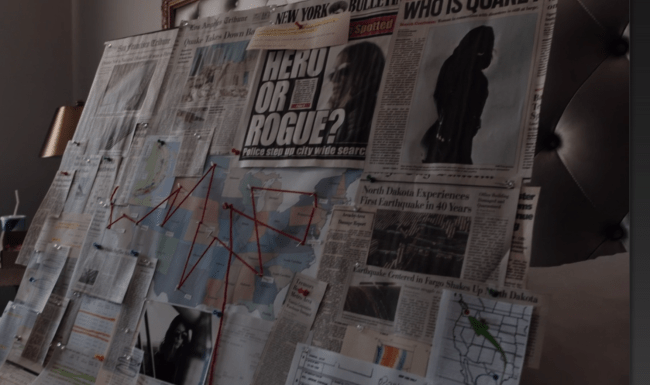
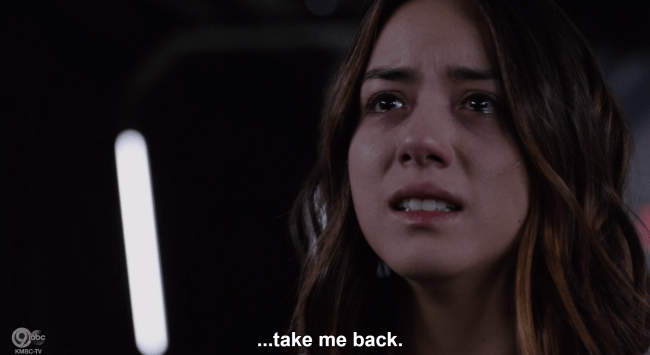
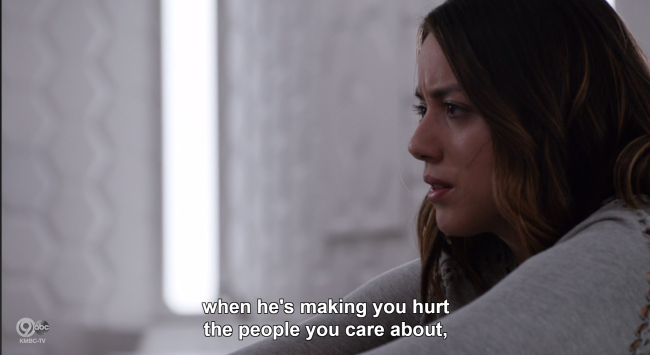
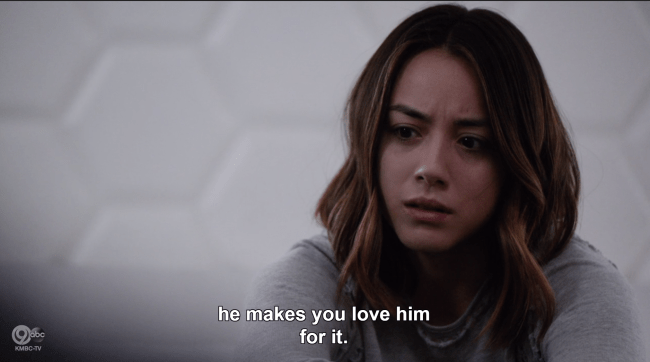
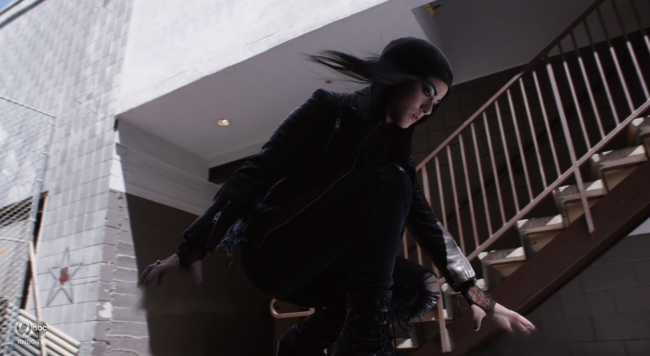





Published: May 18, 2016 04:24 pm